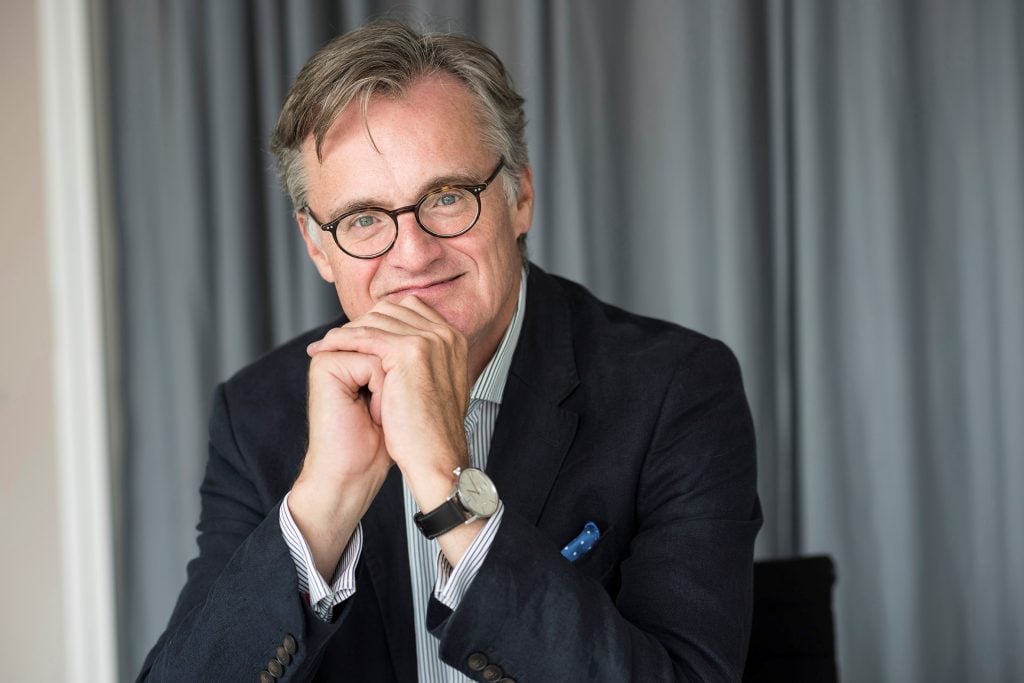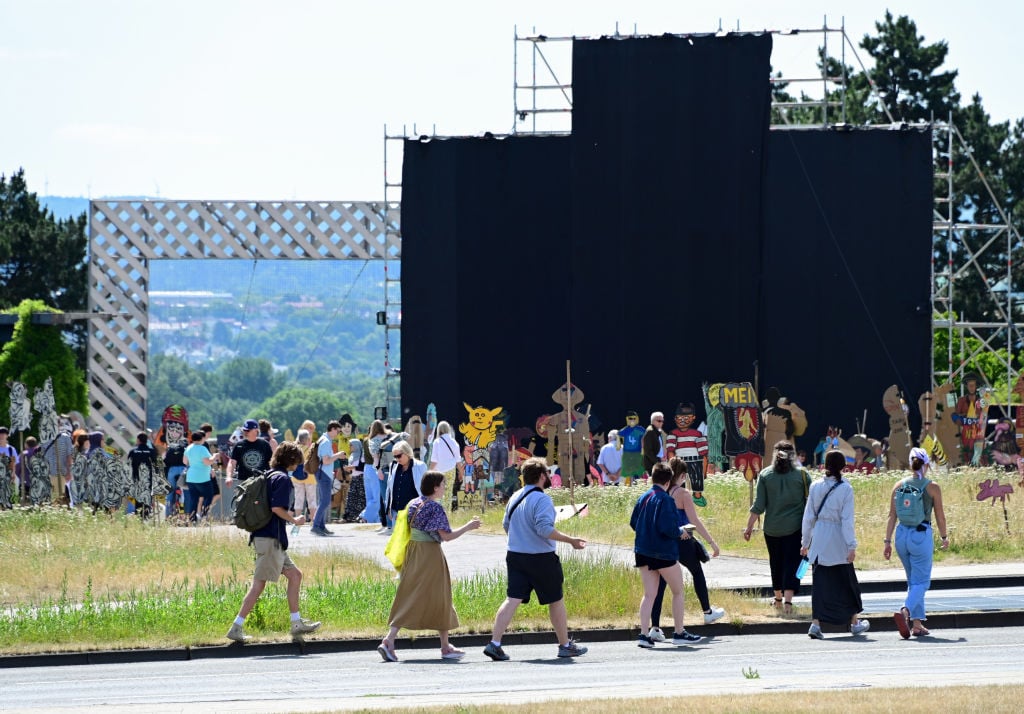Politics
Documenta’s New Managing Director Says Curators Will Have the Final Say About Further Reviews of Art in the Contentious Exhibition
The show will continue on through September 25th.

The show will continue on through September 25th.

Caroline Goldstein

Alexander Farenholtz, who assumed the helm of Documenta last week, wants to get the troubled exhibition back on its feet. The sprawling quinquennial has been roiled by an ongoing controversy that culminated with the removal of an artwork featuring antisemitic imagery from the exhibition and the ouster of Sabine Schormann, the general director of Documenta’s parent company.
In recent interviews with German press, Farenholtz, Schormann’s replacement, said there will be no formal review of remaining works in the show for antisemitic content, unless the Indonesia curatorial collective Ruangrupa, who are helming this edition, choose to do so. “That must be a free decision of the curators,” he said.
A team of advisors from a variety of fields will come together to deal with the topic of anti-Semitism and related issues surrounding Documenta and will be available as “discussion partners” for Ruangrupa and their appointed artistic team, should they seek that, Farenholtz told the press.
He “doesn’t doubt for a second,” he added, that Documenta 15 will continue until its planned closing date of September 25. He said he hopes for a “cheerful summer in Kassel.”

The large painting People’s Justice (2002) by the Indonesian collective Taring Padi, covered with black cloth, on Friedrichsplatz. Several anti-Semitic motifs could be seen on the banner. Photo: Uwe Zucchi/dpa via Getty Images.
Farenholtz is an experienced arts administrator with existing ties to Documenta. He served as managing director of the quinquennial back in in 1989, managed the cultural program for the World Expo in Hanover in 2000, and was administrative director of the German Federal Cultural Foundation.
He will oversee an expert panel selected by Angela Dorn, Hesse’s minister of art, and Susanne Völker, Kassel’s head of culture (both the city of Kassel and the state of Hesse are shareholders in Documenta gGmbh, the exhibition’s nonprofit parent company). The advisory committee will be responsible for making recommendations and offering advice—should the curators ask for it—about how the show should handle the ongoing discussion about antisemitism in the show, including the now-removed work by Indonesian collective Taring Padi.
Farenholtz emphasized that “it is up to the curators in what way they want to make use of the advice.” He described the official recommendations as an “an advisory service” and not “a restriction on curatorial freedom.”
Fully addressing the complicated issues that came to a head at Documenta, Farenholtz noted, will require engagement that outlasts the exhibition, dubbed the museum of 100 days. “The topics to be dealt with extend far beyond the Documenta 15, both in terms of content and time,” he said.
Documenta 15’s troubles began in January, when a blog post on the Alliance Against Antisemitism Kassel website accused some members of Ruangrupa, as well as some of the participating artists, of supporting the pro-Palestinian Boycott, Divest, and Sanctions movement. While the accusations cast a pall over the show, it was the identification of antisemitic imagery in Taring Padi’s work in early June that set off a firestorm. The work was removed amid apologies from both the artistic directors and the collective; organizers also convened an emergency panel to discuss the wider issue of antisemitism in art.
Less than two weeks later, one of the most prominent artists in the show, Hito Steyerl, pulled out of the exhibition, citing a “refusal to facilitate a sustained and structurally anchored inclusive debate around the exhibition, as well as the virtual refusal to accept mediation.”